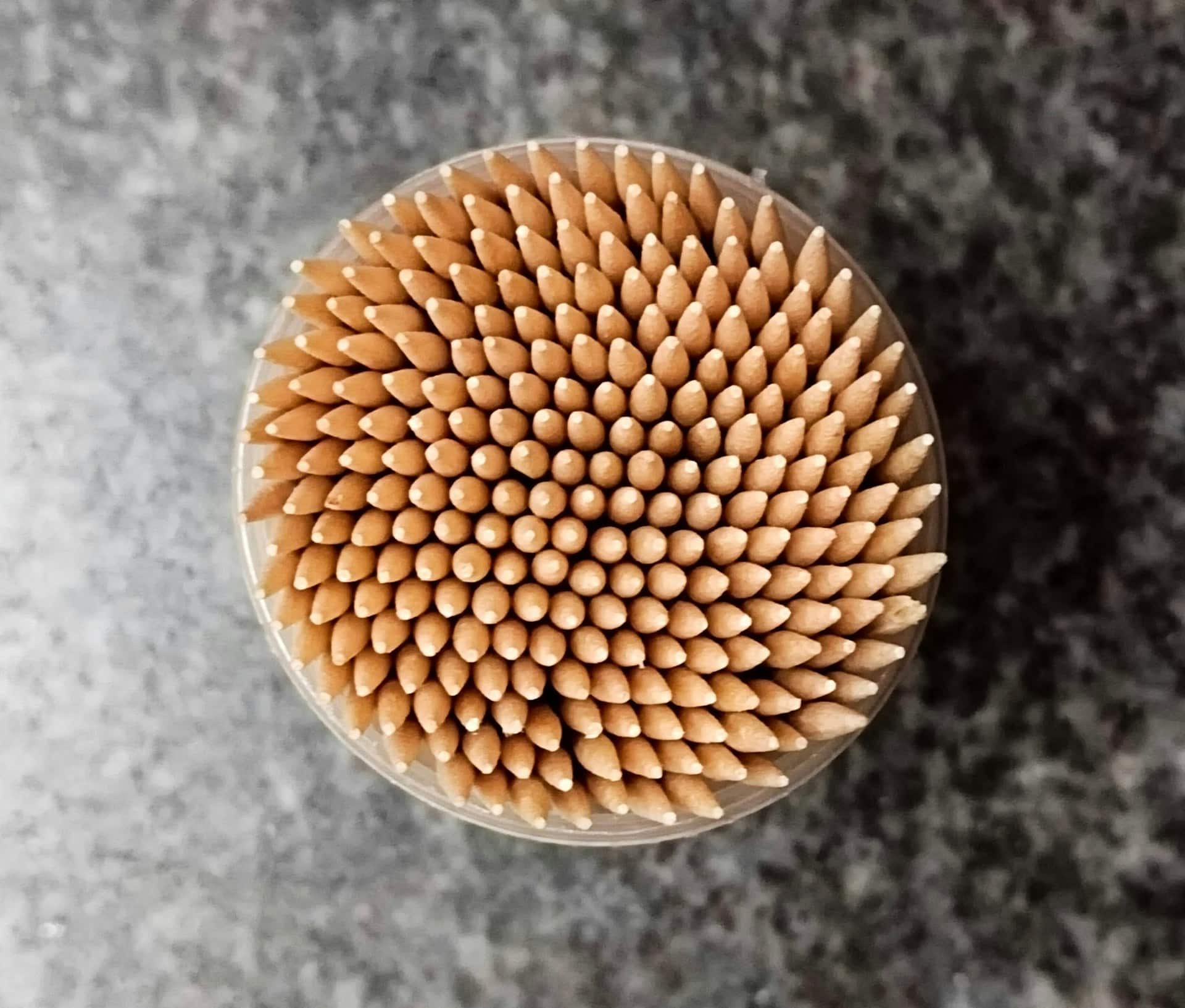
14 Apr The Dangers of Toothpicks, and Why They’re Bad for Your Teeth
While it might seem a little silly to label toothpicks as “dangerous,” they can do some real damage to your gums and tooth enamel. This goes for wooden toothpicks, metal toothpicks, and the pointy end of plastic floss picks as well. If you get something stuck in your teeth, you should be reaching for your dental floss or a water flosser, not a toothpick. Our dentists explain why.
Toothpicks Are Bad for Your Teeth
Toothpicks have been a problem ever since prehistoric times. Forensic scientists studying the teeth of a Neanderthal skeleton determined that the individual had suffered from gum disease because of worn tooth enamel. They had deep grooves, pitting and scratches on their teeth that were most likely caused by the habitual use of toothpicks.
Even today, however, most people don’t realize the amount of damage a toothpick can do. How bad could a little stick of wood really be? But the truth is that toothpicks can cause permanent damage like enamel wear, gum recession, and more.
Five Reasons Not to Use Toothpicks
- They can jam debris even further beneath your gums or between your teeth, where it will fester.
- They are too wide to fit between your teeth and put them under too much pressure.
- They can splinter or break and cause minor injuries, and pieces can get wedged between your teeth or under your gums.
- They can scratch your gums and cause bleeding, which makes you more vulnerable to gum infections.
- They can scratch your enamel and make your teeth more vulnerable to cavities. They can even damage dental restorations like fillings and crowns.
Chewing on Toothpicks Is Also Bad
Even if you’re not using them to pick your teeth, toothpicks can still be dangerous. Chewing on toothpicks can cause premature enamel loss, which leads to tooth decay. And if you have any trouble with bruxism, TMJ disorders, headaches, or jaw pain, it could make your symptoms worse.
Toothpicks and Your Gums
Because your gum tissue is so sensitive, toothpicks can do some serious harm. Poking or scraping your gums while you’re picking your teeth can cause tenderness and bleeding. Toothpicks can easily scratch your gums, leaving tiny open wounds that are vulnerable to infections.
If your gums are sore, and you’re poking them with a toothpick because it eases the pain, it is probably a sign of gum disease. This chronic infection makes your gums feel tender and sore, and in its later stages it will cause gum recession and tooth loss. Go to the dentist for treatment as soon as possible, because once it reaches its advanced stages, gum disease can cause permanent damage.
What to Use Instead of Toothpicks
As long as you use it correctly, dental floss is the safest way to get food debris out of your teeth. It comes in nice flavors, too, just like the mint or cinnamon toothpicks that some people prefer. If you have trouble with string floss, try using a floss pick—floss part only!—a water flosser, or an interdental brush.
Do NOT use your fingernails, a fork, a piece of paper, or anything else to try to get something out of your teeth.
In case of emergencies, you should always keep a travel-sized tooth care kit handy. You never know when you might need some dental floss or a breath strip or a quick brushing. Keep a travel kit in your desk, your locker, your vehicle, or your backpack. That way, you’ll always be prepared to clean your teeth safely if something gets stuck in between them.
Full-Spectrum Dental Care in Prescott
If you ever get something stuck in your teeth and you’re having trouble removing it, come to Prescott Dentistry for a cleaning. Our dental hygienists will be able to remove it safely, without damaging your tooth enamel or hurting your gums. And if you’re experiencing any signs of gum disease, like soreness or sensitive teeth, we can provide non-invasive, pain-free treatment.
At Prescott Dentistry, we offer comprehensive, holistic dental care in a stress-free environment. Contact us to make an appointment today.
Photo by Sreeja on Unsplash used with permission under the creative commons license for commercial use 4/6/25.



